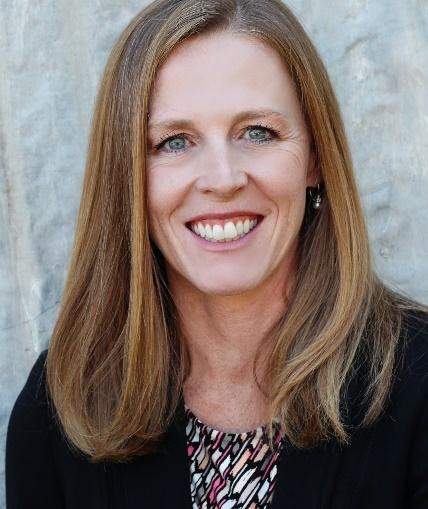By: Wesley Nuffer, PharmD; Eric Gilliam, PharmD; Megan Thompson, PharmD; Jennifer Trujillo, PharmD
Introduction:
The COVID-19 pandemic shut down much of the world except for essential personnel. Student pharmacists were almost universally removed from practice sites, posing significant challenges for us to help them meet graduation requirements.
Meeting the challenge:
After evaluating remaining requirements across the P4 class, we established two remote APPEs to fulfill these requirements: a combined Ambulatory Care-Community-Elective (ACE) APPE (80 students) and a health-system APPE (37 students). There is little evidence around an approach like this, although we did identify an interesting blog.1
The ACE APPE was broken into two four-hour blocks per day for 15 days, instead of a normal six-week APPE. Twenty-three faculty members developed the content, which was delivered via live Zoom sessions or asynchronous self-learning activities. Student performance was evaluated in each block by participation in live sessions, completion of assignments, and a 15-question open-notes quiz.
The health-system APPE was structured around remote patient monitoring, virtual rounds, and topic discussions. All students received remote EMR access. Twelve inpatient faculty developed a longitudinal COVID-19 patient case, and supervised students following complex inpatients. Students created an electronic patient track board, using a collaborative spreadsheet document via Microsoft OneDrive to self-organize, assess patients, and communicate to preceptors. All participants could simultaneously edit the document in real-time. Students also presented journal clubs, case presentations, or topic discussions based on gaps from previous rotations. Instead of completing the traditional APPE evaluation rubric, which contained items not applicable to the remote APPE, faculty provided global performance ratings using an A-B-C-Fail grade scale for each component and provided feedback as needed.
Outcomes:
All students passed both APPEs and completed all individual requirements. All but 12 (7.5%) received an A, compared to an estimated 15% of students typically earning less than an A historically. The average quiz score was 93.2% (range 78.5% – 99.1%).
A 5-point Likert post-APPE survey completed by almost 90% of both faculty and students yielded positive views. Faculty scored acquisition, reinforcement and application of knowledge and skills through use of these remote APPEs significantly higher than students, although both groups scored these high (mean values 3.9-4.6) Both groups felt that remote delivery would play a role in future experiential education. Students were less concerned about the negative impact the virtual design had on professional relationships (mean values 3.5 vs 4.1 in faculty).
Faculty enjoyed developing activities aligned with their expertise. They were most concerned about limited engagement of learners with preceptors, patients, and other healthcare professionals in the virtual environment. Interestingly, many students enjoyed “screen time” with faculty and working with many faculty compared to one preceptor. Common student complaints included technology issues, density of assignments, and long Zoom sessions with variable preceptor engagement.
What worked?
Everyone adopted a “we’re all in this together” mindset, resulting in quick adaptation, innovation, and collaboration. Faculty leveraged their individual strengths and students showed tremendous flexibility and resiliency. The combined effort was successful in fulfilling student graduation requirements.
What didn’t?
The experience took its toll on students. Many suffered from “Zoom fatigue” after being thrust into a new virtual world.2 The workload was overwhelming to some, who felt they were putting in more than an 8-hour day. Although students enjoyed seeing faculty on screen and participated in patient care activities, we believe the level of true, meaningful engagement was suboptimal.
What’s next?
This experience begs the question: Which aspects of experiential training are essential, and which are ideal? Aside from intentional telehealth patient care delivery, a remote rotation cannot replicate live engagement with patient care and team collaboration. The unpredictable nature of practice may be the true teacher during APPEs. Lessons learned from this experience may be applicable in the future. Telehealth and remote care will be utilized during the remainder of the COVID-19 pandemic, and may become a fixture in future pharmacy practice. Programs may need to intentionally train competency in this care modality.
As public health challenges create barriers, we must ask when is on-site training truly critical? Simulations and virtual experiential training have shown to be effective in improving patient care during introductory pharmacy practice experiences (IPPEs).3,4 However, we contend that in-person training must be a hallmark of APPEs. Conversely, required APPE competencies were assessed in this virtual environment, indicating that a remote rotation is an option if absolutely necessary. Interestingly, ACPE Standards constrain simulation use within IPPE training and grounds APPEs based on concepts of “practice settings” and “direct patient care.”5 Both concepts are being re-defined as healthcare systems adapt to new patient care modalities. We conclude that:
- Virtual interactions may have a place in teaching experiential learning
- While these hold value, the majority of experiential education should continue in-person
We further ask, “How can remote learning evolve further to better capture the essence of experiential training?”
References:
- Bates T. Can you do experiential learning online? Assessing design models for experiential learning. Online Learning and Distance Education Resources, Dec 7, 2014.
- Skylar J. ‘Zoom fatigue’ is taxing the brain. Here’s why that happens. National Geographic: Science Coronavirus Coverage, April 26, 2020.
- Seybert AL, Smithburger PL, Benedict NJ, et al. Evidence for simulation in pharmacy education. Journal of the American College of Clinical Pharmacy 2019;2(6):686-692.
- Tai M, Rida N, Klein KC, et al. Impact of virtual simulation in self-care therapeutics course on introductory pharmacy practice experience self-care encounters. Currents in Pharmacy Teaching and Learning 2020;12(1):74-83.
- Accreditation Council for Pharmacy Education (ACPE). Accreditation standards and key elements for the professional program in pharmacy leading to the Doctor of Pharmacy degree.
Author Bio(s):

Wesley Nuffer, PharmD, BCPS, CDCES is an Assistant Director of Experiential Education and Associate Professor at the University of Colorado Skaggs School of Pharmacy and Pharmaceutical Sciences. Scholarship interests include experiential education, diabetes, and immunizations. In his free time, Wes enjoys the martial arts and the great outdoors of Colorado with his family.
Eric H. Gilliam, PharmD, BCPS is an Assistant Director of Experiential Education and Associate Professor of Clinical Pharmacy at the University of Colorado Skaggs School of Pharmacy and Pharmaceutical Sciences. His scholarly interests include curriculum design and assessment with a focus on interprofessional education, experiential education, and self-awareness. In his free time, Dr. Gilliam is an avid hiker and home cook.


Megan Thompson, PharmD, is the Director of Experiential Education and Associate Professor of Clinical Pharmacy at the University of Colorado Skaggs School of Pharmacy and Pharmaceutical Sciences. Her educational scholarship interests include curricular/co-curricular design and educational models as they relate to experiential education, managing multigenerational differences in a workplace or educational environment, resilience, self-reflection/self-awareness, and preceptor development. In her free time, Dr. Thompson enjoys rafting, camping, hiking and skiing with her family in the beautiful Colorado outdoors.
Jennifer Trujillo, PharmD, FCCP, BCPS, CDCES, BC-ADM is a Professor in the Department of Clinical Pharmacy at the University of Colorado Skaggs School of Pharmacy and Pharmaceutical Sciences in Aurora, Colorado. Her educational scholarship interests include curricular innovation, instructional design, and teaching and learning assessment. In her free time she enjoys the beautiful hiking and biking trails of Colorado, traveling, and spending time with her family.

Pulses is a scholarly blog supported by a team of pharmacy education scholars

1 Comment